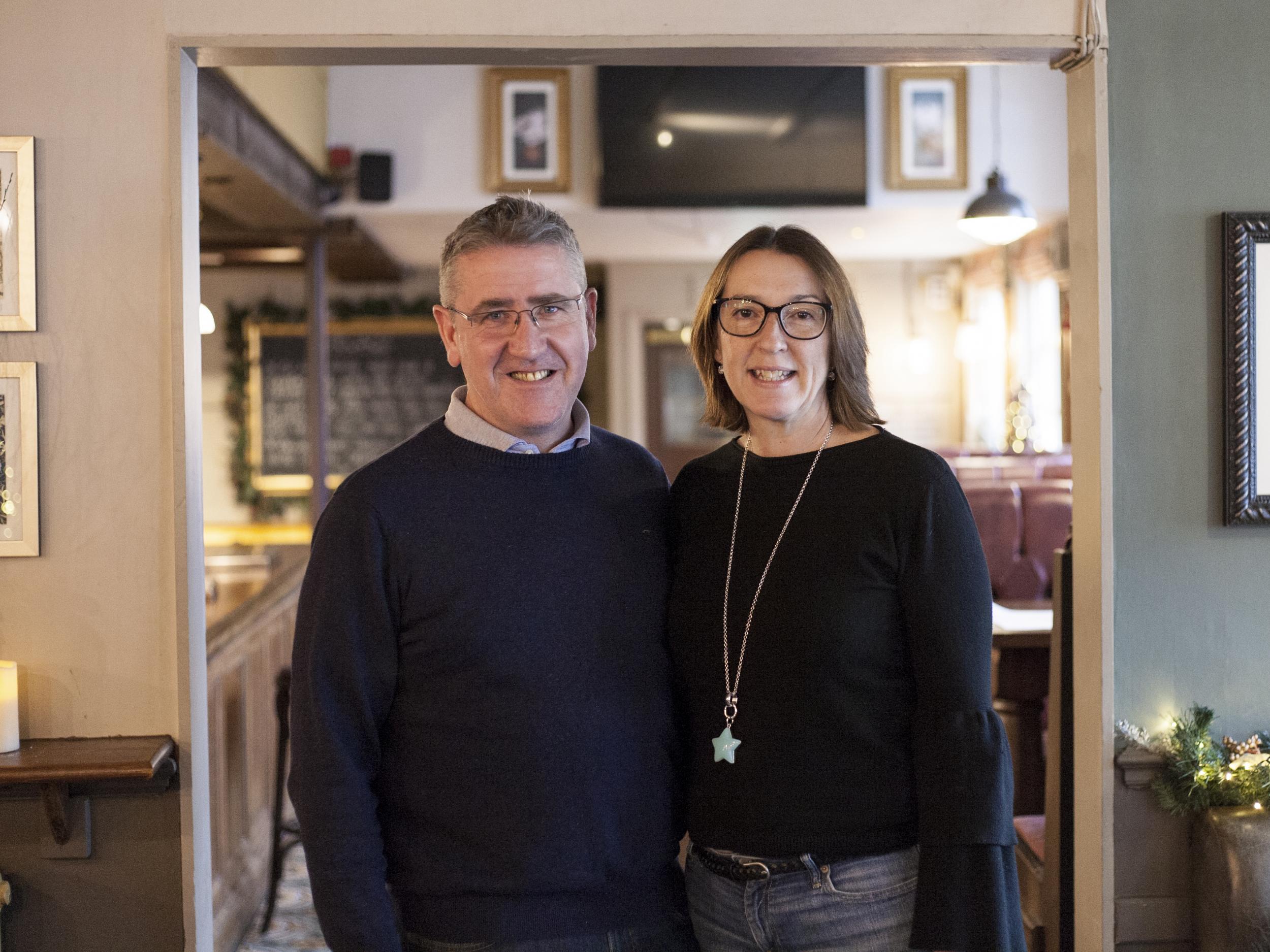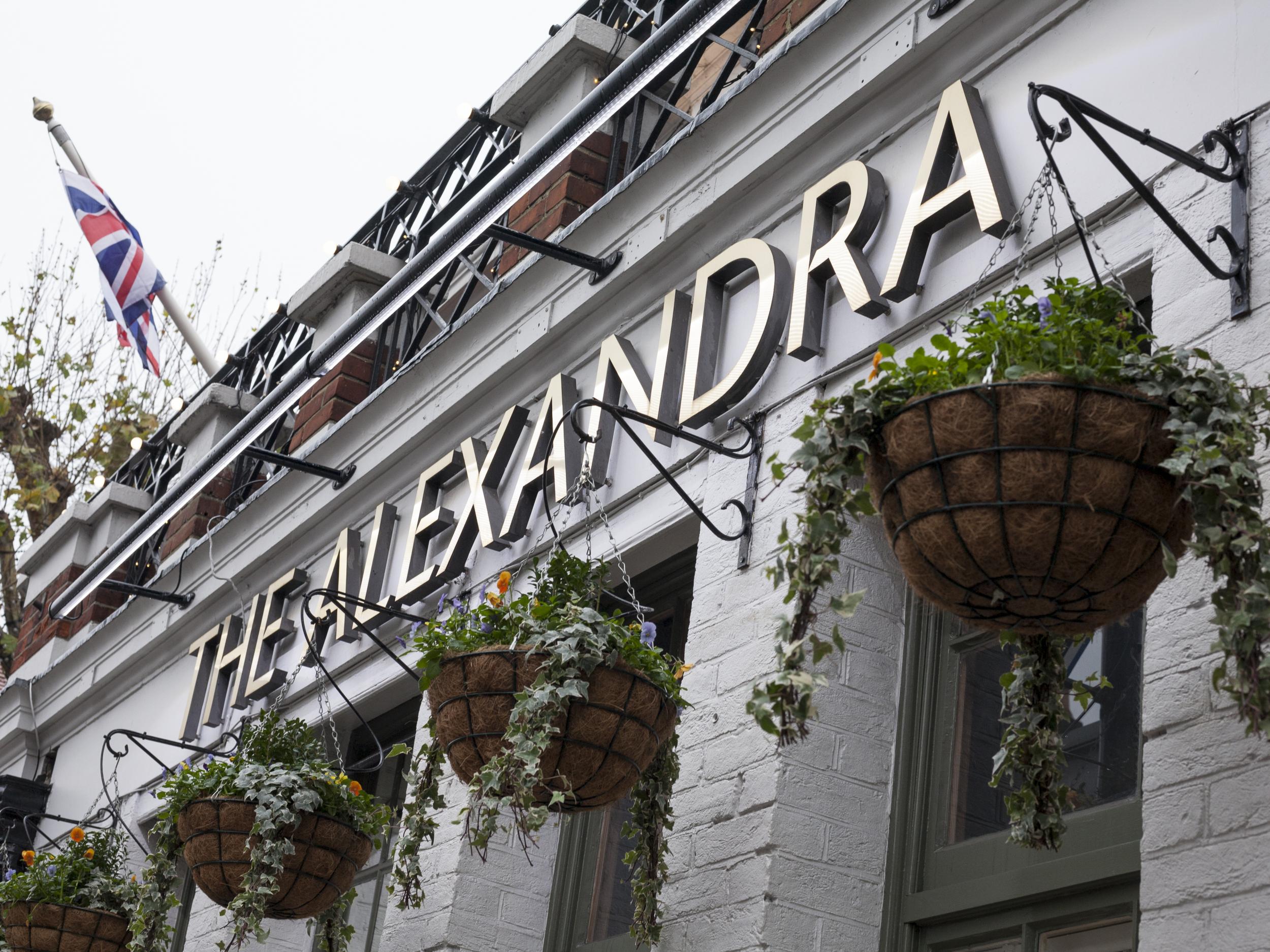The London pub offering a free Christmas meal to lonely people
‘Just because we're in a big city doesn't mean to say you can't be the heart of your community’
Your support helps us to tell the story
From reproductive rights to climate change to Big Tech, The Independent is on the ground when the story is developing. Whether it's investigating the financials of Elon Musk's pro-Trump PAC or producing our latest documentary, 'The A Word', which shines a light on the American women fighting for reproductive rights, we know how important it is to parse out the facts from the messaging.
At such a critical moment in US history, we need reporters on the ground. Your donation allows us to keep sending journalists to speak to both sides of the story.
The Independent is trusted by Americans across the entire political spectrum. And unlike many other quality news outlets, we choose not to lock Americans out of our reporting and analysis with paywalls. We believe quality journalism should be available to everyone, paid for by those who can afford it.
Your support makes all the difference.“Last year, a guy came up to me at the end and said it was the first time he’d had a Christmas dinner with somebody else for 17 years.”
This will be the fourth time that staff at The Alexandra (or the Alex, to its regulars), a pub in the centre of Wimbledon in southwest London, have provided a free Christmas lunch to people spending the holiday by themselves.
Landlords Mick and Sarah Dore dished up 62 roasts last year and are aiming for 100 in 2018. But, they say, the most difficult part is “is to get people to come out of the house in the first place”.
Loneliness campaigners are well aware of the problem. Jill Mortimer, policy manager at Age UK, told The Independent that “some people are really entrenched in loneliness, especially bereavement or disability”, and that many do not want to admit to being alone due to a perceived stigma.
Weeks of persuasion and investigation of “what’s stopping them connecting” may be necessary to convince someone to come out of their shell, she said, adding that men in particular are more likely to attend events if they can play an active role.
This was one of the reasons the Alex upgraded their prior offer of a drink on Christmas to include a meal, Mr Dore said – it’s not just about having a beer, but about getting stuck in and involved..
“We had a retired naval guy come in and I sat and had a couple of pints with him, right at the end as we were closing,” said Mr Dore. ”He obviously had nowhere to go and he was such a lovely man. I said: ‘Why don’t you come and have dinner with us, the staff and my family?’
“He said he wouldn’t because he had somewhere else to go – and he clearly didn’t have. It was really the interaction with him that year, when we locked the door and he toddled off into the night, when I thought that food would be the thing.”
The 52-year-old, who has run the Alex with his wife for the past nine years, added: “We don’t just sit people on their own – I have a clipboard and I greet people when they come in and get them a beer at the bar, then sit like-minded people together.
“No one eats on their own at all and there’s no rush for them to go afterwards – they stick around and help us clear a few tables.”

The image of loneliness at Christmas tends of be of an older person by themselves at home, and for good reason. Age UK estimated in September that there are currently some 1.4 million people over 50 in England who say they are “often” lonely, or about 7 per cent of that age group.
But the charity also says that “being often lonely can occur at any age and the risk of loneliness is not driven by age but by people’s circumstances, which can differ by age.
“For example, leaving education is often a vulnerable time for younger people, whereas the death of a loved one is more common among older people.”
It has predicted that by 2026 some 2 million older people will be “often” lonely. The government has launched an entire strategy to combat the problem, inspired by the work of the late Jo Cox.
Age UK’s research also suggests that at Christmas hundreds of thousands of people will spend the day with their TV as the only form of company, Ms Mortimer said.
Ms Dore, also 52, told The Independent that the pub sees a mix of ages on Christmas Day.
“I was a little bit surprised, because I think the expectation is that it’s generally going to be older people who are on their own. And there are a lot of older people, but we had a young guy who’d missed his train back home to Leeds so he came and joined us for the day, a 24-year-old student.
“We had a sad story, but it actually turned out really beautifully: a young lady whose boyfriend dumped her on Christmas Eve so she came and she made loads of friends. They came back and had lunch in February and made a really strong friendship.”
She added: “It’s directed at local people – we want to do stuff for our community. Everybody’s welcome and if you can get here, please come, but the pub should be the heart of the community and sometimes I think that’s a little bit lost in this day and age. And just because we’re in a big city doesn’t mean to say you can’t be the heart of your community.”

Putting on Christmas for people who otherwise would not have one is a chance for pubs – if they are able – to regain the sense they are a hub for people, Mr Dore said, adding: “Look at the opportunity there that’s not just for business but to do some nice stuff. And on the back of that, sure, it will help your business as well.”
The Alex’s social media posts about their Christmas offering, and its “meet-up Mondays” nights started with a similar aim, have won its staff widespread praise. On Twitter, community support for the scheme is plain as Girl Guides and brass band members donate money to support the free meal.
Asked how he saw the Alex’s role in Wimbledon, Mr Dore said: “Every time you pick up the newspaper you read about pubs closing, but I think this is the age of the pub because the community centres, libraries – all the community outlets where people go – are closing down left, right and centre.
“All the more, the pub has a relevance in society, and I think the ones that see that and the ones that can deepen the footprint a little bit, really reconnect with the people in the area. I think the future’s bright for pubs.
“It’s important that pubs get that and start looking in their community as it changes and as the needs of it change.”
Pubs took a further hit in 2018 after years of declining numbers, The Independent has reported, with people deciding to relax at home instead of at their local. It was part of a wider decline in UK high streets that saw 2,692 shops close in the first half of the year while just 1,569 opened – a net loss of 1,123.
And government austerity measures have led to the selling off of thousands of public spaces, including resources like libraries and swimming pools. Councils disposed of more than 20,000 such sites in five years for “short-term gain”, a report found this year. The Locality charity said closing these buildings “can have a devastating impact on local people and communities”.
Ms Dore added: “Everyone can do their bit – it doesn’t have to be a big gesture. Even just visiting a neighbour. It’s time that people want, I think, more than money – they want interaction with people.”
Subscribe to Independent Premium to bookmark this article
Want to bookmark your favourite articles and stories to read or reference later? Start your Independent Premium subscription today.

Join our commenting forum
Join thought-provoking conversations, follow other Independent readers and see their replies
Comments